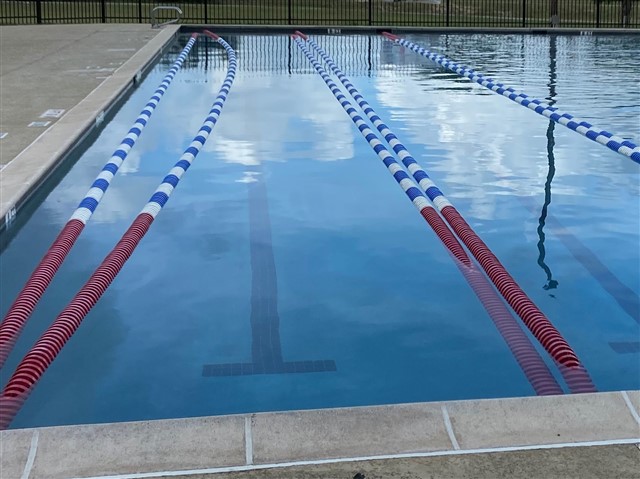Our community pool opened for the summer, and here are the lane lines this morning as set up for the time reserved for adult lap swim. Would you consider this a safety issue? Help me write a note to my city council. Or tell me if it's fine. Setting aside the first lane on the left, are you okay with the straight double lane dividers?
I politely asked two employees about it and their answer boiled down to, "it's a lot of work to change the lines for when family swim starts in a couple of hours".



